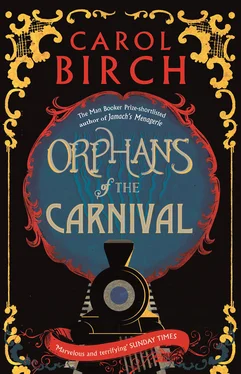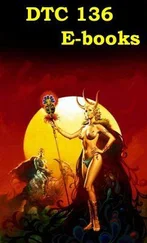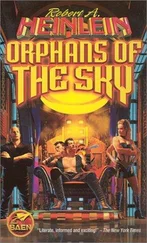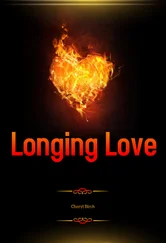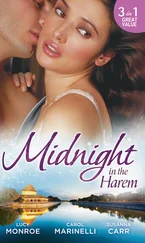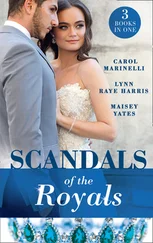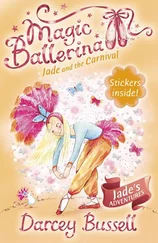She was wandering about in that place she went to on rainy afternoons. Under the trees, trying to sustain it till she could reach the castle with the drawbridge, which she knew was there because she’d glimpsed it a couple of times but never got close enough to take a good look. If you pushed on too far, the whole thing just faded away. It was like trying to see seven separate stars in the Pleiades and ending up with just a smudge on the sky. She could, however, stay as long as she wanted in the wood. She always entered by the southern fence, approached across a yellowing field. For a long time she’d had to crawl under the barbed wire, but she’d put a gate in a few years ago, and now just lifted the latch. There were logs lying about on the edge of the wood, fallen branches, usually a few bluebells and some wild garlic. The weather was always still and mild. The trees were not that dense here, and there were two paths, one to the left, the one she always took. The path to the right didn’t look any different, but for some reason she never went that way. It wasn’t something she gave any thought to, apart from a vague unhurried sense that she’d take it one day. If you followed the usual path the wood soon grew hushed and holy, high-roofed like a cathedral. It was never so wild as to be impenetrable but always lush. Wild flowers scented the air; ivy stormed over trees and rambling roots. The undergrowth was low and moist. As the wood deepened, there was no sense of a world beyond. There were people somewhere in here, she thought, but she’d never met any. She’d glimpsed creatures. Off in a pollen-dusty glade, a fallow deer, poised. She heard birds, a serene echoing, murmurous as water far away. A stag beetle crossed the path. At last she came to the place where she always stopped and rested. Ancient trees stood at respectful distances from one another. Between them, sinuous green clearings rolled out as if shaken, and the roots of the trees were gigantic, cushioned with starry green moss you could lie down on and fall asleep. She usually fell asleep in the end. Only occasionally did she keep her eyes open and later maybe, move on to the place where the land opened up, and the little bridge crossed to the moated castle, the drawbridge down, welcoming.
Someone banged on the door.
Damn them.
When she opened her eyes the room was unrecognisable, resolved into its shapes with all dimensions removed. Rap rap rap. Then the shapes re-angled themselves into a different perspective, and for a moment a great high-edificed city with thoroughfares and byways spread out in front of her. But it was gone in a moment, leaving only stuff.
Rap rap. ‘Rose!’
I’m not in, she thought.
‘Rose!’
Bloody Laurie. If you knock on someone’s door three times and they don’t answer, they’re either out or they don’t want to open the door. You don’t go on banging and shouting.
Rap rap.
Sod off. She sat up, leaning forward with a frown, slipping her feet into a pair of patchwork slippers. A couple of minutes later she heard him turn and go back downstairs. She had sharp ears and knew all the sounds of this house, the creakings of particular stairs, the sighings of particular doors. When she was sure he was out of the house, she got up and shuffled over to the mantelpiece for her tobacco. Bang goes sleep. Her big toe, the long nail pointed and purple, stuck out of a hole in one of the slippers.
Laurie could go jump. Too many rows lately. If you could call them that, him nagging on about her stuff as if it had anything to do with him, and she endlessly telling him to give her peace. Anyway, whatever happened to that nice casual no-strings thing?
Her face in the mirror was scarily plain and blank, all the makeup rubbed off her eyes. She looked like no one she knew. Once, in madness, she’d thought it could work but of course it couldn’t. It was lust only, never meant to last. Touching him used to be an electric thrill, now it was a shudder. Now her flesh now crept apologetically when his clumsy great hand brushed the side of her breast. Oh here we go again, she’d think, and he sensed it. She was glad he was married. He couldn’t blame her for backing off now, could he? She’d let him in tomorrow, or tonight if he came back maybe, so long as he didn’t moan. But she wasn’t giving up this sleepy rainy afternoon.
She opened a cupboard. Halva. Absinthe. Sugar. Some Dunkaroos from her brother in America. Absinthe. Yes. She turned up the gas fire. Listen to it teeming down. Outside the window was a green garden washed with rain.

She’d shaken thousands of hands and spoken to hundreds of people over the past couple of years, since leaving home; most just wanted to stare and ask the same old things. How are you? Are you happy? Unhappy? Do you wish you were like other people? They looked so closely, they didn’t really hear what she replied. I’m like others, she’d say. Sometimes happy, sometimes not. What’s the point of wishing? Things are as they are. My life is more interesting now. I travel. Meet people. Her real feelings, too hard to describe, were that life was not back there at home but somewhere ahead, so there was no other way, she’d keep moving. Let them look, yes yes, I’m real and so are you, let’s look at each other. Off they’d go, amazed she could talk, having gazed so much they hadn’t really seen her at all. And she’d cry at nights, remembering young men she’d danced with and the faces of children throwing stones, quake at her insecurity, the vagueness of time, but still sing and dance and carry on.
When Theo Lent called, she had no idea at first that he was anything other than a regular rube, though one rich enough to afford a private audience. Beach just said it was a gentleman to see her, showed him in, introduced them and withdrew. They were in the upstairs parlour of a house on Broome Street in New York, a place used entirely by show people. Christmas was past. Snow fell softly, drifting past the window, and a good fire billowed in the grate.
‘Miss Pastrana,’ he said, holding her eyes very firmly, smiling in a businesslike yet disarmingly boyish way, ‘I’ve been wanting to meet you for a very long time.’ She wasn’t wearing her veil, but he obviously knew what to expect and showed no sign at all of being unsettled.
‘Surely not so long,’ she replied as they sat down. Her first impression was of a smug overgrown schoolboy, twinkly-eyed and dressed like a swell but a little shabby.
‘Yes,’ he said, ‘ so long.’
He leaned towards her, bringing his face so close to hers she could smell his clean eager breath. His neat round face was cheerful, black hair combed high above his forehead. ‘I saw you at the Stuyvesant last night,’ he said, ‘a remarkable performance! Wonderful!’
‘I’m glad you enjoyed it,’ Julia said.
‘Miss Pastrana,’ he said, coming closer still, ‘ Oh , look at you, Miss Pastrana.’ His intensity was ridiculous.
She looked away, excited and slightly alarmed, almost thinking he was going to kiss her. There’s some madness in him, she thought.
‘Outrageous,’ he said. ‘Completely outrageous.’
‘What is?’
‘The things they say.’
‘What things?’
‘I can quote.’ He sat back. So did she, thankfully, a faint quivery sensation growing inside. ‘ Eyes like the owl. Gifted with speech. The link between mankind and the ourang-outang .’
‘That was Dr Mott.’
‘I know.’
‘But they all say different things. The one in Boston said I was human.’
‘Your eyes are nothing like the owl,’ he said. He never stopped smiling. ‘How many wise men have you seen?’
Читать дальше
